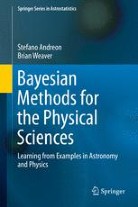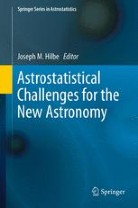
About this book series
How did the Universe form? How old is it? What is it composed of and how wide-ranging is it in scope? And, will it continue to expand? These are questions cosmologists have long sought to answer by comparing data from myriad astronomical objects to theories of the universe’s formation and evolution. But, until recently, cosmology was a data-starved science. For instance, before the 1990 launch of the Hubble Space Telescope, the Hubble constant—a number representing the current expansion rate of the universe—could only be inferred ever so slightly, and cosmologists had to make do performing simple statistical analyses. Since that time, technological advances have led to a flood of new data, ushering in the era of precision cosmology. The Sloan Digital Sky Survey alone has collected basic data for more than 200 million objects. To help make sense of all this data, cosmologists have increasingly turned to statisticians to develop a broad range of answers, and a new interdisciplinary field has arisen: astrostatistics. Work in astrostatistics uses a wide range of statistical methods, and in the past ten years a number of statistical issues relating to the interpretation cosmology’s very large and imperfect data sets have become prevalent and a source of controversy. Also, in the past ten years, over twenty discrete sections in astrostatistics have become affiliated with departments of statistics or astronomy in North America alone. Later this year, the International Statistical Institute(ISI) will launch the International Astrostatistics Network(IAN) as a discrete companion society to the ISI. An IAN-branded journal is already in the formative stages as well.
This new series delves into the new discipline that is statistical astronomy. It is designed to cover many of the diverse areas of this newly evolving discipline, with an emphasis on specific statistical methodologies and relevant topics in cosmology that these methods impact. The series will focus primarily on monographs from leading researchers in statistics and astronomy, but broad reviews that potentially could be utilized as texts in graduate courses in statistical astronomy will also be included. Proceedings volumes covering many symposia in statistical astronomy are designed to be included as well.
- Electronic ISSN
- 2199-1049
- Print ISSN
- 2199-1030
- Series Editor
-
- Jogesh Babu,
- Hyungsuk Tak,
- Chad Schafer,
- V. Ashley Villar
Book titles in this series
-

-
Bayesian Methods for the Physical Sciences
Learning from Examples in Astronomy and Physics
- Authors:
-
- Stefano Andreon
- Brian Weaver
- Copyright: 2015
Available Renditions
- Hard cover
- Soft cover
- eBook

-
Astrostatistical Challenges for the New Astronomy
- Editors:
-
- Joseph M. Hilbe
- Copyright: 2013
Available Renditions
- Hard cover
- Soft cover
- eBook

-
Astrostatistics and Data Mining
- Editors:
-
- Luis Manuel Sarro
- Laurent Eyer
- William O'Mullane
- Joris De Ridder
- Copyright: 2012
Available Renditions
- Hard cover
- Soft cover
- eBook

Abstracted and indexed in
-
- zbMATH
